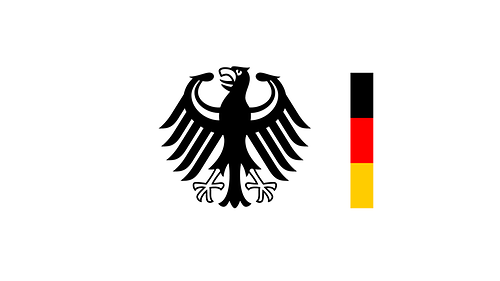INFO PEACE
At the brink of a war starting on the eastern front of Europe I like to share a 23 year old pledge by ethical hackers that should interest policy makers today, especially those in charge of taking difficult decisions as the financial-war move of cutting Russia off the SWIFT network.

At the brink of a war starting on the eastern front of Europe I like to share a 23 year old pledge by ethical hackers that should interest policy makers today, especially those in charge of taking difficult decisions as the financial-war move of cutting Russia off the SWIFT network.
Please bear with me for a moment through this brief historical digression.
INFO PEACE — Keep the networks of communication alive.
“We strongly oppose any attempt to use the power of hacking to threaten or destroy the information infrastructure of a country, for any reason. Declaring “war” against a country is the most irresponsible thing a hacker group could do. This has nothing to do with hacktivism or hacker ethics and is nothing a hacker could be proud of.”
We are all concerned about the fate of Ukraine and Europe through this conflict and it is hard to control emotions for many of us, but please lets focus on the fact that escalating war never leads to winners. On the other hand, to achieve peace access to information is vital for everyone who cares about democracy.
The information infrastructure that connects people is what allows us to share stories, stay united, watch over human right violations and support people in danger in many ways. War to the contrary is made of isolation, fear, lack of communication and unfathomable uncertainty.
Just like our fellow hackers two decades ago, I believe that people standing for democracy today need to focus on keeping communications alive, faithful to the understanding that what really can cross borders is cultural hegemony, as Antonio Gramsci (not the english wikipedia) once defined it .

Democracy is the worst fear of the aggressor
Culture and democracy are the best weapons we have and communication channels are the only useful vectors that can let us drive a counter-offensive to the very heart of an anti-democratic empire.
Just like we did in Baghdad back in 2006, we need civil societies to share solidarity across the front of war, we need a distributed peace force armed by the hegemony of culture.
The best we can do is help many voices to exist, not shut them down.
And also today what will really make a difference in this difficult situation is not yet another cyberattack seeding chaos in Russian society, but a steady channel of communication to vehicle empathy, solidarity and information.
Today I’m not just talking about hackers and not just about the Internet.
Europe should not cut Russia off the SWIFT network
We need to maintain viable connections across the borders of this conflict and grant people a connection that can resist crisis, that can show resiliency and can be trustworthy even in the worst situations.
What we call Russia today is a vast territory, the Russian people are many and very diverse. To black-out such a huge and resourceful connection during a conflict is like burning a bridge that leads into enemy’s territory.
Also let me argue that such a move will not hurt Russia, but Europe the most.
Russia has long overcome various bans and depreciations in the past decade. It would be foolish to think they haven’t prepared a response, because SWIFT is not technically difficult to reproduce and innovate, it is an old and clunky architecture.
SWIFT is a world-wide standard in finance because of its industrial placement, an advantage that would be lost in a second if the balance shifts towards new systems.
And believe me when I say new systems are ready to roll in Russia and China, with many new features that can be appealing to more industries in the world. A big advantage of SWIFT is adoption, by cutting off adoption the leap needed for technological supremacy is EASY.

What I’m predicting today is very similar to what happened with Bitcoin and Wikileaks: if you cut one head of the Hydra, another will pop up immediately. Perhaps the aggressor is waiting for this to happen.
Peace cannot be achieved by black-out.
To the contrary, black-out is a condition of war.
Addendum (27 February 2022)
Lesson to be learned from the SWIFT black-out in Iran:
“The Iran sanctions regime is a terrible model. It has had severe documented effects on millions of innocent civilians, while helping a small circle of corrupt government-linked elite benefiting from the sanctions-circumvention ecosystem. Sanctions have also helped nearly destroy Iran’s civil society and exacerbated domestic repression against any form of dissent. This is more of a feel-good policy for politicians in Washington, to appear tough on the Iranian government, while in reality helping crush average Iranian citizens. Also the humanitarian exemptions to sanctions are not working. Food and drugs, especially life-saving medicine for patients with special diseases, have been impacted by these financial sanctions. Again hurting innocent civilians while the elite have access to high quality services and resources.” — @negarmortazavi

Insights on measures taken by Europe
Despite news media outlets report the sanctions as “SWIFT block”, by going in detail we can be relieved that the current strategy taken is that of intervening on specific banks and account. Here relevant press releases:


TL;DR:
- certain number of (big) RU banks cut from SWIFT
- stop Russian war chests, paralyzed assets from central banks
- prohibit Russian oligarchs to use assets in foreign countries
Two relevant paywalled articles
- Opinion | America’s Other Forever War — The New York Times (nytimes.com)
- Russian Sanctions: Wall Street Counsels Washington Against Ban From SWIFT — Bloomberg
Sancionar a los oligarcas, no al pueblo
/cloudfront-eu-central-1.images.arcpublishing.com/prisa/VZVPGI2ATBH5NH3AY2KBOXTMTM.jpg)
Tune in to the discussion 💬
(These services are bridged: join your favorite and reach them all)
🗨️ Matrix
🗨️ Telegram
🗨️ Discord
Support Dyne 🫱🏿🫲🏾
🪙 Bitcoins: bc1qz9wz2f9swcefra2tfrhk4fx49evqsv03m9nx4l
☕ Ko-Fi
🍴 Github.com
🧁 LiberaPay
🍥 Patreon.com
Follow Dyne.org 🗞️
Social Media everywhere!
🐘 Mastodon
🎬 Peertube
🐭 Lemmy
📸 Instagram
🐦 Xitter
👔 Linkedin
🪞 Facebook
✍️ Medium










